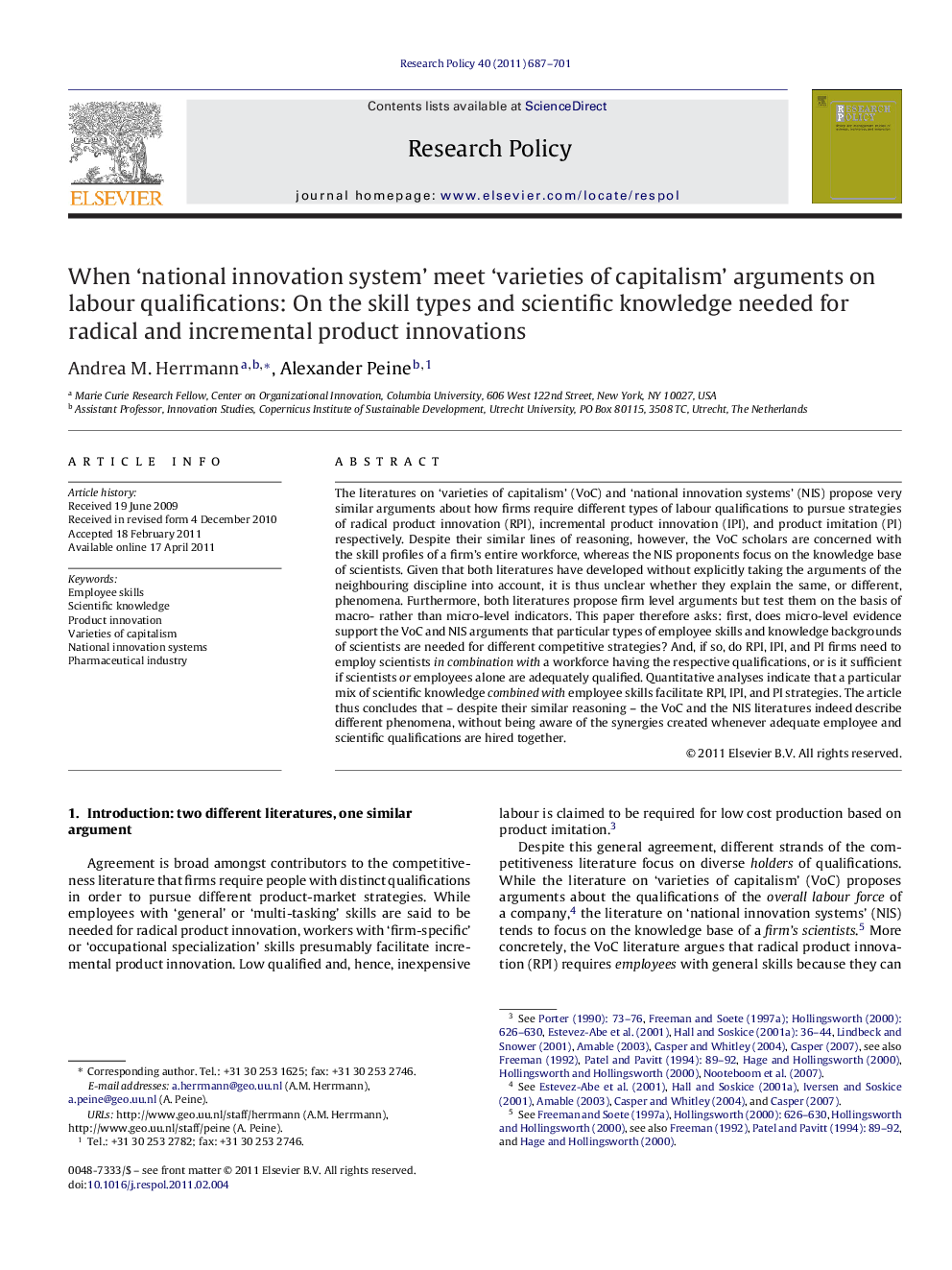| کد مقاله | کد نشریه | سال انتشار | مقاله انگلیسی | نسخه تمام متن |
|---|---|---|---|---|
| 985074 | 934415 | 2011 | 15 صفحه PDF | دانلود رایگان |

The literatures on ‘varieties of capitalism’ (VoC) and ‘national innovation systems’ (NIS) propose very similar arguments about how firms require different types of labour qualifications to pursue strategies of radical product innovation (RPI), incremental product innovation (IPI), and product imitation (PI) respectively. Despite their similar lines of reasoning, however, the VoC scholars are concerned with the skill profiles of a firm's entire workforce, whereas the NIS proponents focus on the knowledge base of scientists. Given that both literatures have developed without explicitly taking the arguments of the neighbouring discipline into account, it is thus unclear whether they explain the same, or different, phenomena. Furthermore, both literatures propose firm level arguments but test them on the basis of macro- rather than micro-level indicators. This paper therefore asks: first, does micro-level evidence support the VoC and NIS arguments that particular types of employee skills and knowledge backgrounds of scientists are needed for different competitive strategies? And, if so, do RPI, IPI, and PI firms need to employ scientists in combination with a workforce having the respective qualifications, or is it sufficient if scientists or employees alone are adequately qualified. Quantitative analyses indicate that a particular mix of scientific knowledge combined with employee skills facilitate RPI, IPI, and PI strategies. The article thus concludes that – despite their similar reasoning – the VoC and the NIS literatures indeed describe different phenomena, without being aware of the synergies created whenever adequate employee and scientific qualifications are hired together.
► Which type of a corporate workforce is more innovative: employees or scientists?
► Separate studies of both groups confirm their individual innovativeness.
► Yet, collaborations between employees and scientists create striking synergy effects.
► Cross-fertilization of ideas due to collaborations boosts corporate innovativeness.
► Our findings qualify varieties-of-capitalism and national-innovation-system arguments.
Journal: Research Policy - Volume 40, Issue 5, June 2011, Pages 687–701